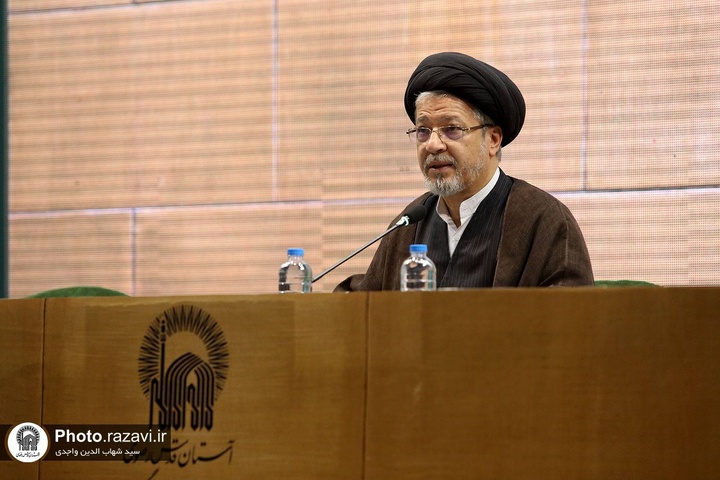Speaking in the congress preliminary session on ‘Justice & Islamic Civilization in Imam Reza’s Teachings’, secretary of the congress, Hoj Saeedreza Ameli pointed to Imam Reza’s 20-year-long Imamate – 3-5 years of which overlapped with his tenure as heir apparent. “This period requires us as Shias to investigate more deeply; the Imam had an interactive spirit and his dialogues with leaders of other faiths were well documented”, said he.
He added that the Imam’s competence in other religious scriptures such as Zoroastrian, Christian, Jewish was evident in his words. “Galenus (a Roman Greek physician) debated that Imam Reza wanted to use the Holy Quran as a means of protest. But the Imam drew upon the Old Testament as the base of his reasoning and won the debate. That is, he knew Torah better than Galenus”.
Ameli lamented the failure of Shias in tapping into an immense intellectual capital such as Imam Reza, saying: “Plato lived 2000 years ago but his scientific position still lingers; however, we’ve failed with regards to teachings of the Prophet’s Infallible Household. Therefore, we need to go to the Islamic scripture to come up with a doctrine based on the Holy Quran and Ahl al-Bait”.
The secretary stressed it did not mean that we should “keep away from modern doctrines, rather, we mustn’t let go of our own vast Islamic capital and resort to some dubious issues”.
He stated that the first round of the congress got underway in 1989, where the Leader of the Islamic Revolution made a speech.
The upcoming round of the event has been suggested by the custodian of Imam Reza shrine, Hoj Marvi, with a new reading of Imam Reza’s teachings.
“We can’t separate justice from social acts. Today, we can’t discuss justice without drawing attention to Gaza. Some 70% of its population is in a critical situation, and more than 14,000 have been martyred so far. We can currently see the global backlash, which means justice and oppression are not religious issues, rather, they’re extra-religious discussions”, Ameli continued.
The Islamic scholar further noted that justice did not necessarily mean equality; rather, “it means doing right to individuals in society”.


Your Comment